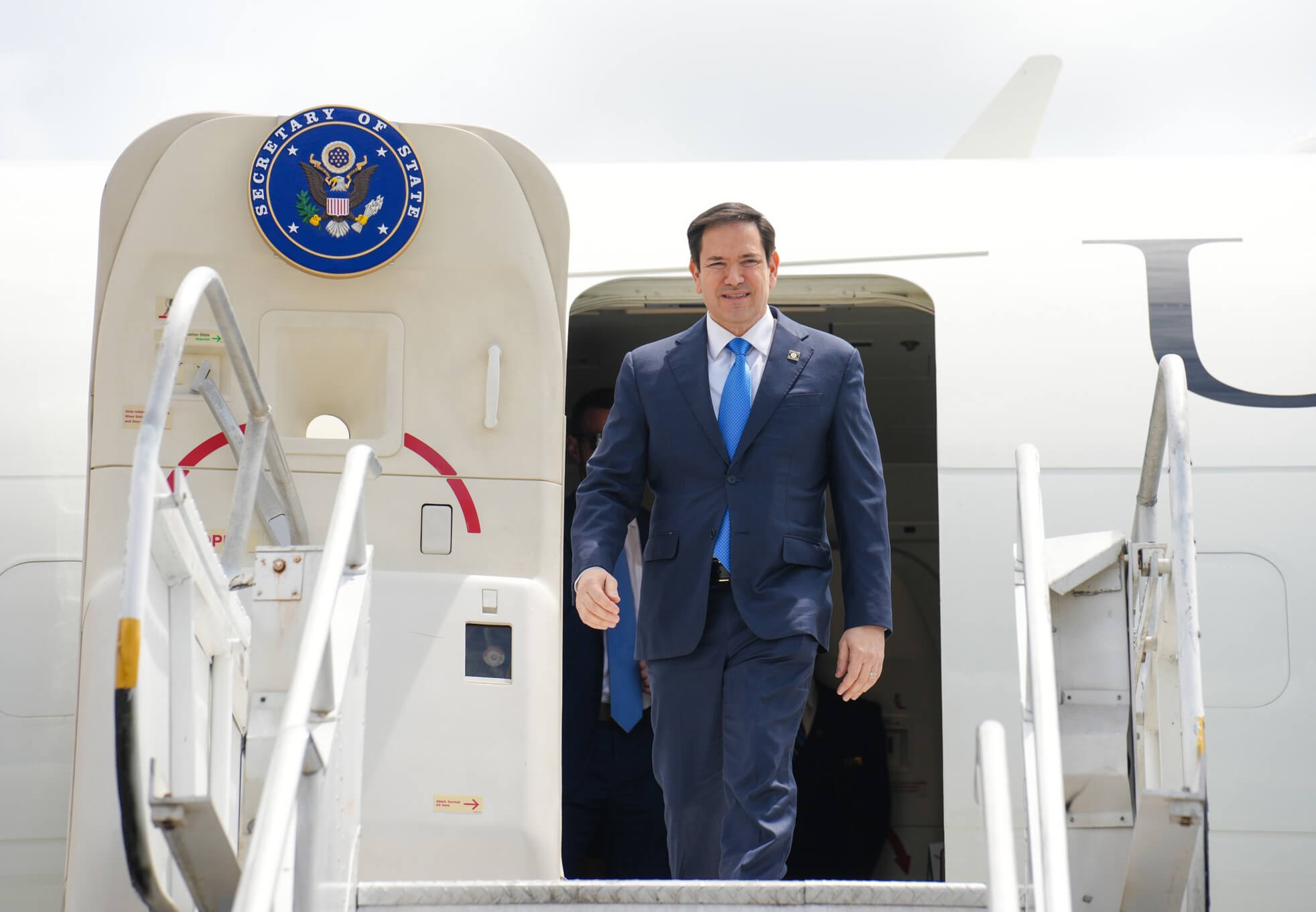Marco Rubio travels to curb Chinese influence in the Caribbean
Photo: U.S. Department of State on Flickr.
According to a report by Infobae, on Wednesday, March 16, Marco Rubio, the U.S. Secretary of State, began a tour of the Caribbean, visiting Suriname, Jamaica, and Guyana with the aim of curbing the influence of the People’s Republic of China and Venezuela in the region. In addition, Rubio will hold meetings with the leaders of Haiti, Barbados, and Trinidad and Tobago.
In this regard, Infobae noted that China’s President Xi Jinping uses soft loans and access to the Chinese market as tools to consolidate his country’s influence in these nations. The outlet also reported that Venezuelan President Nicolás Maduro seeks to undermine Guyana’s sovereignty by influencing the election of the governor of Essequibo, a territory rich in oil reserves.
On the other hand, the political situation in Haiti is critical, with the constant growth of criminal organizations profiting from drug trafficking and the illicit arms trade. In view of this scenario, the U.S. State Department considers Haiti an institutional priority and is therefore working on designing a democratic transition agenda for the country.
Mauricio Claver-Carone, the special envoy for Latin America under Donald Trump, stated that the crisis in Haiti is alarming and that this visit will allow Caribbean neighbors and allies to voice their opinions. He also emphasized that the commission aims to advance efforts to combat gangs to prevent them from taking over Port-au-Prince. He further highlighted the high volume of Chinese and Iranian citizens transiting various Caribbean islands, which, according to him, could pose a risk to the security of the United States and the region.
Regarding Rubio’s visit to Guyana, it has a clearly geopolitical character, given Maduro’s repeated threats toward the Essequibo region—which, as mentioned, holds significant oil reserves. It is speculated that Maduro’s strategy may resemble that employed by Russian President Vladimir Putin in the Ukrainian provinces. A key date in this dispute will be May 25, when the governor elections are held.
Amid these tensions, Venezuelan President Nicolás Maduro demanded a bilateral meeting with Guyanese President Irfaan Ali. However, the Guyanese leader rejected Maduro’s proposal and instead announced that he would host U.S. Secretary of State Marco Rubio in his office.
In addition, according to Caribbean National Weekly, President Irfaan Ali expressed concern over potential tariffs that the United States might impose on Chinese vessels operating in the Caribbean. This new U.S. policy could negatively affect regional trade, particularly in Guyana.
The private sector has also voiced its concerns about the possible impacts of these tariffs, which could result in fines of up to 1.5 million dollars for vessels bearing the flag of, or manufactured in, the People’s Republic of China. According to the U.S. government, this measure is intended to curb China’s commercial and military expansion at sea.
In a statement, President Irfaan Ali reaffirmed his commitment to evaluating the potential impact of this policy on oil and gas tankers, warning that costs could increase significantly, thereby affecting the sector. He also stressed the importance of mitigating any negative effects that the implementation of this policy might generate.
Last but not least, the Guyanese leader emphasized that the United States is a key strategic partner for his country, and he expects to meet with Secretary of State Marco Rubio to discuss various issues, including the development of this new trade policy.
Main Source:
Related News:
Marco Rubio Visits Costa Rica and Hardens Stance on China
Panama will not renew the Memorandum of Understanding on the Belt and Road Initiative with China
President of Paraguay warns About China’s influence in Latin America
You may be interested in:
Guyana’s President raises concerns over potential US tariffs on Chinese ships – CNW
China’s Growing Influence in Latin America – Council on Foreign Relations

